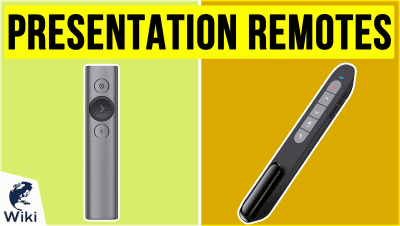6 Nonprofits Making A Difference In Seattle
All across the world, countless individuals and families struggle due to the lack of access to affordable housing, food, healthcare, and education. Luckily, there are numerous groups working hard to improve their communities by providing those in need with the resources they require to thrive. In no particular order, here are some compassionate organizations addressing the social issues faced by communities across Seattle.
First up, at #1, we have Jewish Family Service. Founded in 1892, it helps vulnerable individuals and families in the Puget Sound region achieve well-being, health, and stability. It does this through various means, including financial assistance, outreach and education programs, and supportive living services for people with developmental disabilities. Its Polack Food Bank operates on a consumer-choice model and serves people of all backgrounds who reside in the Capitol Hill neighborhood.
The organization works with HIAS to resettle refugees assigned by the U.S. Department of State, offering various services such as information and assistance, language and citizenship classes, and volunteer support. Jewish Family Service also provides counseling for those with mental health concerns, physical or social stressors, addiction, and past or current trauma.
Next, at #2, is Seattle Cancer Care Alliance, a world-class treatment center that unites doctors, nurses, and scientists from Fred Hutch, UW Medicine, and Seattle Children's. It aims to make its care and expertise accessible to the broader population by engaging with the community through partnerships with local organizations, education and prevention programs, and financial assistance for patients who need support.
The center offers an array of services for its patients, including transportation, housing options, emotional and spiritual support, and advance care planning. The Alliance also aims to advance the standard of oncology care throughout the region by providing high-quality medical education to healthcare providers through symposiums, webinars, and training courses.
Coming in at #3 is the West Seattle Food Bank, which is committed to strengthening the community by supplying families and individuals with access to essential resources and services. Clients of the Food Bank are given a shopping cart and are able to pick from a wide selection of items, with options for those who have special dietary or cultural needs.
The organization also provides emergency support services, such as rent and utility assistance, to those experiencing or recovering from crisis. Its free clothing store, the Clothesline, offers a variety of garments for infants, children, teens, and adults, including specialized options such as school uniforms and professional attire for job interviews.
Taking the #4 spot is Seattle Area Feline Rescue. Located on the border of Seattle and Shoreline, it's a no-kill shelter that takes in homeless cats and kittens, gives them the care they need to recover, and finds them loving homes. All felines are microchipped, spayed or neutered, vaccinated, and are treated to a free checkup at Cascade Pet Hospital or another participating clinic.
The shelter relies on the support and dedication of volunteers in order to save the lives of cats and kittens. It supports its foster homes by covering all necessary expenses, including food, litter, and medical care. Seattle Area Feline Rescue also has a store that carries a curated selection of toys, beds, and supplies, with all of the profits going directly to help the felines in need.
Next up, at #5, we have the United Indians of All Tribes Foundation. Founded in 1970, it provides an extensive array of culturally responsive services and programming to Seattle and King County’s urban Native communities. Its headquarters, the Daybreak Star Indian Cultural Center, is home to the Sacred Circle Gallery, which features rotating exhibits of works by contemporary Native artists.
United Indians promotes the well-being of the region’s Indigenous community through services that support cultural connection, school readiness, economic self-sufficiency, housing stability, and health. Its Labateyah Youth Home provides a safe and nurturing environment for homeless youth, while the Bridge Housing Program aims to move young adults as quickly as possible to permanent rental homes.
Finally, at #6, we have WithinReach, an organization that seeks to make it easier for families across the state to navigate complex health and social service systems, and connect with the resources they need to stay healthy and safe. It addresses the needs of the community through resources such as ParentHelp123, a website that helps users find local services such as food banks, low-cost health clinics, and child care centers.
Another program of WithinReach is the Immunity Community, which promotes vaccination and vaccine confidence across the state and beyond. It routinely offers e-courses for professionals who work in the immunization field, and creates initiatives responding to the needs of specific communities.




